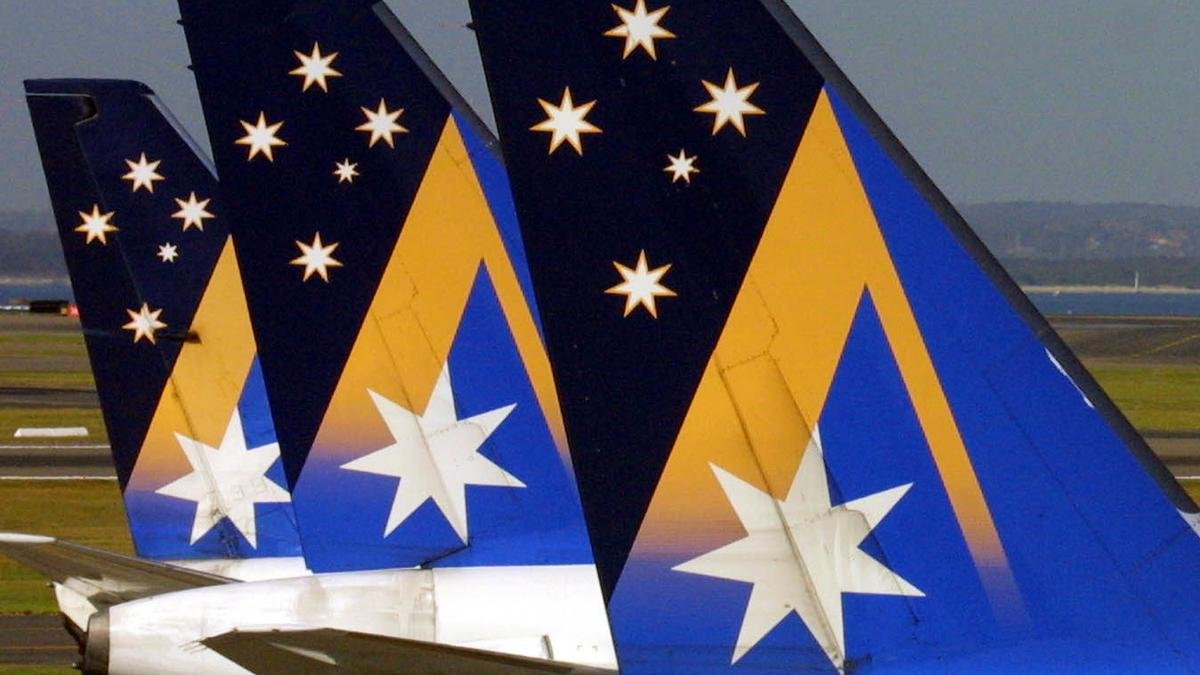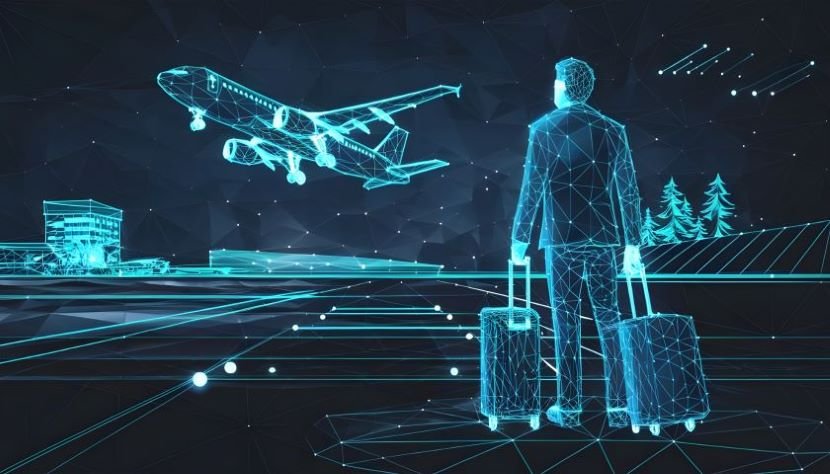AI in Travel
How Criminals Are Using AI to Clone Travel Agents and Steal Your Money

Your dream vacation could become a nightmare if you fall for these sophisticated AI-powered scams. The travel industry is experiencing an unprecedented surge in AI-powered fraud. What started as simple fake booking websites has evolved into something far more sinister: criminals are now using artificial intelligence to clone the voices and identities of trusted travel agents, creating convincing impersonations that can fool even the most cautious travelers.
Recent data paints a sobering picture. Booking.com reports a staggering 500 to 900 percent increase in travel scams over the past 18 months, largely driven by AI technology. McAfee research reveals that 30 percent of adults have either fallen victim to online travel scams or know someone who has while trying to save money on travel.
The New Face of Travel Fraud: AI Voice Cloning
Gone are the days when scammers relied solely on poorly written emails with obvious typos. Today’s travel fraudsters are weaponizing AI voice cloning technology that requires as little as three seconds of audio to create a convincing replica of someone’s voice. Here’s how these sophisticated scams typically unfold:
The Setup: Criminals research legitimate travel agents, tour operators, or booking specialists through social media, company websites, and online videos. They harvest voice samples from promotional videos, webinars, or even customer service recordings.
The Clone: Using readily available AI tools—some costing as little as $5 to $10 per month—scammers create voice clones that perfectly mimic speech patterns, accents, and even emotional nuances of real travel professionals.
The Hook: Armed with these cloned voices, criminals make convincing phone calls to potential victims, often claiming to represent established travel agencies or offering “exclusive” deals that create urgency to book immediately.
Red Flags: How to Spot AI-Cloned Travel Agents
While AI voice cloning technology has become incredibly sophisticated, there are still warning signs you can watch for:
Listen for inconsistencies: Pay attention to unusual word choices, stilted language, or responses that seem rehearsed or robotic. AI-generated voices may struggle with emotional range or natural conversation flow.
Verify through multiple channels: If someone claiming to be a travel agent unexpectedly contacts you, hang up and call the agency directly using a number you find independently—never redial the number that called you.
Be wary of pressure tactics: Legitimate travel agents won’t pressure you to book immediately or demand payment through untraceable methods like wire transfers, cryptocurrency, or gift cards.
Check for licensing and credentials: Ask for specific licensing information and verify it independently. Real travel agents are typically registered with industry organizations and local business bureaus.
Beyond Voice Cloning: The Full Arsenal of AI Travel Scams
Voice cloning is just one weapon in the modern scammer’s arsenal. Criminals are also using AI to:
Create convincing fake websites: AI tools can quickly generate professional-looking travel booking sites that mirror legitimate companies, complete with stolen branding and customer reviews.
Generate fake reviews: AI-written testimonials can flood fake listings with glowing five-star reviews that seem authentic but are entirely fabricated.
Produce deepfake videos: Some sophisticated scams now include video calls featuring AI-generated faces that can interact in real-time, making the deception even more convincing.
Automate phishing campaigns: AI helps criminals create personalized emails and messages that target specific individuals based on their travel history and preferences.
The Financial Impact: Why These Scams Are So Devastating
The financial consequences of AI-powered travel scams can be catastrophic. VPNRanks predicts that travel scam losses could reach $13 billion globally by 2025, with an average loss of nearly $1,000 per victim. Even more concerning, business travelers face a 65 percent higher risk of falling victim compared to leisure travelers.
The sophistication of these scams means that even cybersecurity-savvy individuals can be caught off guard. In one notable case, a finance worker in Hong Kong was tricked by an AI-powered deepfake video call into transferring over $25 million to criminals who had used publicly available footage to impersonate multiple senior executives.
How McAfee Protects You from AI-Powered Travel Scams
At McAfee, we understand that the same AI technology enabling these scams can also be our best defense against them. Our comprehensive McAfee+ protection suite includes several key features specifically designed to combat these emerging threats:
McAfee Scam Detector: Our AI technology powers advanced scam detection that can identify suspicious patterns and behaviors. This includes recognizing potentially fraudulent communications before they reach you on text messages, email and even deepfake protection.
Identity Monitoring and Alerts: Our comprehensive identity monitoring watches for signs that your personal information may have been compromised—a critical early warning system since scammers often research their targets extensively before launching attacks.
Safe Browsing Protection: When you’re researching travel options online, our web advisor protection features block access to known malicious sites and warn you about suspicious domains in real-time.
Personal Data Cleanup: We help remove your personal information from data broker sites that scammers often use to research potential victims, reducing your exposure to targeted attacks.
Your Defense Strategy: Staying Safe in the Age of AI Scams
Protection against AI-powered travel scams requires a multi-layered approach combining technology, awareness, and smart practices:
Verify independently: Always confirm travel arrangements through official channels. If someone calls claiming to represent a travel company, hang up and call the company directly using contact information from their official website.
Be skeptical of urgency: Legitimate travel deals don’t require immediate action. Take time to research and verify any offer, especially if it involves upfront payments or personal information.
Use secure payment methods: Avoid wire transfers, cryptocurrency, or gift cards for travel payments. Use credit cards that offer fraud protection and dispute resolution.
Limit social media exposure: Be cautious about posting travel plans, photos, or videos that could provide scammers with material to clone your voice or research your activities.
Trust your instincts: If something feels off about a conversation or offer, don’t ignore that feeling. It’s better to miss out on a potentially legitimate deal than fall victim to a sophisticated scam.
The Road Ahead: Preparing for Future Threats
As AI technology continues to evolve, we can expect travel scams to become even more sophisticated. Future threats may include real-time deepfake video calls, AI-generated virtual travel agents with full conversational abilities, and hyper-personalized scams based on extensive data analysis.
The key to staying protected is maintaining vigilance while leveraging advanced security tools. McAfee’s AI-powered protection evolves continuously to stay ahead of emerging threats, providing you with the most current defense against the latest scamming techniques.
Your dream vacation should remain exactly that—a dream come true, not a financial nightmare. By staying informed about these threats and using comprehensive protection like McAfee’s identity and scam protection services, you can travel with confidence, knowing you’re protected against even the most sophisticated AI-powered fraud attempts.
Remember: in our digital age, the best travel companion isn’t just a good guidebook—it’s robust cybersecurity protection that travels with you wherever you go.
Ready to protect yourself from AI-powered scams? Learn how McAfee+ and its comprehensive identity theft protection and AI-powered scam detection is designed to keep you safe while traveling and beyond.
AI in Travel
How Is Consumer-Driven AI Innovation Radically Transforming the Future of the Global Travel Industry and What Critical Steps Must Companies Take Today to Adapt, Evolve, and Thrive in This Accelerating Digital Era? Here’s Everything You Need to Understand and Prepare for What’s Next

Monday, July 28, 2025
The Road Ahead: Evolve or Fall Behind
At a pivotal event in Barcelona, industry professionals pointed out that the rapid rise of artificial intelligence (AI) isn’t something approaching—it’s already here. Its influence is being felt in the hands of individual users rather than within traditional corporate or governmental circles. Experts warned that travel businesses that fail to adapt swiftly and meaningfully risk falling behind as the global travel landscape continues to shift. It was emphasized that while embracing AI is essential, thoughtful implementation is even more critical. Companies must remain bold, flexible, and deeply connected to how real people use technology in their daily lives.
Those leading voices conveyed a collective sense of urgency, not panic, indicating that companies that are willing to evolve in step with technological progress will be more likely to thrive rather than merely survive. What was stressed above all is this: now is the time to act.
Actionable Insights for the Travel Sector
During the sessions in Barcelona, several important takeaways were offered for companies operating within the travel space. The insights were grounded in real-time consumer behavior and the growing impact of AI:
- AI development is no longer led by institutions—it’s consumer-driven.
- Travel businesses must adopt flexible, forward-thinking approaches.
- The value of travel must now prioritize authentic experiences over routine logistics.
- A culture of digital exploration and adaptability is essential.
These ideas underscored a broader truth: the pace of change in technology, particularly in AI, is not slowing down. It is continuous, disruptive, and powered by users themselves. Businesses that harness this energy through strategic foresight and cultural agility will be far better positioned to lead.
Responsibility Must Go Hand-in-Hand with Innovation
The event didn’t solely revolve around AI’s capabilities—it also highlighted what AI should do. As travel companies integrate smarter systems into their customer journeys, they’re being called to prioritize ethical choices alongside technological ones.
The shift toward AI means massive quantities of personal data are now involved in decision-making and travel planning. With that, travel providers were urged to:
- Safeguard the human element in every trip.
- Promote transparency and fairness in algorithm-based systems.
- Design experiences that are authentic and respectful.
It was highlighted that the most successful travel organizations will not necessarily be those that are the first to launch AI tools, but those that implement them ethically and in alignment with human values. The emphasis was on crafting real experiences, not just efficient ones.
A New Kind of Travel Experience for the World
As AI becomes more integrated into everyday life, it’s already changing how global travelers approach their journeys. According to discussions in Barcelona, the transformation is happening across various touchpoints in real time. These changes include:
- Highly personalized itineraries created through AI, removing the need for manual trip planning.
- Real-time assistance via chatbots and voice-enabled tools, enabling travelers to resolve issues instantly.
- Intelligent booking systems that adjust based on user behavior, providing dynamic pricing and customized offers.
While these advancements bring efficiency and convenience, they also introduce complex questions regarding data privacy, digital consent, and cybersecurity. Travelers are being given more control, but they must also become more cautious. It was advised that a balance must be struck between embracing intelligent systems and safeguarding one’s digital footprint.
Reevaluating the Purpose of Travel in the AI Era
Speakers at the gathering encouraged participants to reflect on a deeper question: What does travel mean when AI handles most of the process? If machines manage bookings, maps, and even real-time conversations, what’s left for the traveler?
It was widely agreed that technology cannot replace emotion, spontaneity, or human connection. These are the elements that make travel memorable and transformative. In response to increasing automation, the travel sector was urged to shift focus from logistics to meaningful, culturally rich, and human-centered experiences.
As AI makes travel easier and more accessible, companies must take responsibility for ensuring it doesn’t become impersonal. The future of travel lies not in moving people from point A to B faster, but in offering enriching experiences that resonate long after the journey ends.
Staying Relevant in an Accelerating Tech Landscape
One recurring concern voiced in Barcelona was the unrelenting speed at which AI is evolving. Attendees were told that by the time a company implements and launches a new AI tool, newer, more advanced versions may already be available. This makes it challenging for companies to keep up.
To remain competitive and responsive in this environment, it was recommended that organizations follow a two-pronged approach:
- Adopt and integrate existing AI technologies that align with current goals and operations.
- Simultaneously, invest in teams or leaders focused solely on emerging AI trends, allowing for continuous awareness and quick adaptation.
This balance helps companies avoid stagnation. It means operating efficiently today while maintaining a clear vision of tomorrow. The phrase often repeated during these sessions was that organizations must keep “one foot in the future” at all times.
The Rise of Consumer-Led Innovation
A central point that emerged from the discussions in Barcelona was the idea that innovation is now being led by the consumer, not by corporations or research labs. Regular travelers and tech-savvy individuals are actively experimenting with AI tools to enhance how they travel—sometimes in ways that large companies had not anticipated.
Whether it’s through creating personalized travel plans, solving problems through digital assistants, or using AI to explore destinations before visiting, consumers are setting new standards. Businesses are no longer at the forefront; they are reacting to what users are already doing.
For the travel industry, this means abandoning rigid models and embracing adaptive, fluid systems. Companies were advised to build environments that reward creativity, tolerate risk, and encourage constant learning.
A Major Departure from the Traditional Innovation Path
In the past, technological revolutions often began in military or government sectors, slowly made their way into private industry, and eventually reached consumers. However, AI has flipped that model entirely. In today’s landscape, individuals are using AI before many corporations have even begun full-scale implementations.
This bottom-up shift was described as highly unusual but powerful. People around the globe are independently utilizing AI for trip planning, content generation, language translation, and real-time support. These uses are becoming more creative and personalized, pushing companies to reassess how they innovate.
Industry professionals agreed that the old hierarchies of innovation are collapsing, making way for a more democratic, consumer-led evolution.
Beginning of a New Era: How AI is Changing the Face of Travel
In Barcelona, during a high-level industry gathering, the impact of artificial intelligence on travel took center stage. The conversation wasn’t just about technology—it was about how the adoption of AI is unlike anything seen before.
Unlike past innovations that trickled down from elite labs and institutions, AI is taking root in everyday life first. This reversed adoption curve is redefining how businesses engage with travelers. For those in tourism, it means looking outward toward the behaviors and needs of the consumer, rather than relying solely on internal development.
Companies were encouraged to accept that innovation is no longer linear or controlled, and instead, it is messy, fast-paced, and driven by end-users. This demands an entirely new mindset—one that welcomes rapid change, continuous adaptation, and human-first design.
Final Thought
The ideas shared in Barcelona revealed a significant inflection point for the global travel industry. Artificial intelligence is not simply another tool—it is a transformative force that is altering how journeys are imagined, planned, and experienced.
Travel companies are being urged to rethink not just their operations, but their purpose. As AI accelerates, the message was crystal clear: the future will belong to those willing to innovate boldly, adapt constantly, and stay deeply connected to the human spirit that makes travel meaningful.
AI in Travel
Ansett Australia revived as AI-powered travel platform two decades after carrier’s collapse

The Ansett name “is back”, but not as Australians will remember the former airline.
Ansett Australia was once the country’s second-largest carrier but collapsed into administration after suffering financial troubles in 2001.
Its final flight was recorded early the following year.
Know the news with the 7NEWS app: Download today
Now, more than 20 years later, the brand is being revived not as an airline but as an AI-powered holiday booking platform called Ansett Travel.
Melbourne-based entrepreneur Constantine Frantzeskos said it was designed to be a “hyper-personalised” travel agent that suggests trips and itineraries based on your preferences, calendar events and budgets.
“I didn’t just acquire a lapsed trademark and domain, I resurrected trust embedded deep in collective memory,” Frantzeskos said on Monday.
“The original Ansett served Australians beautifully for 65 years before collapsing in 2002, leaving a void in reliability and brand warmth.
“I believe that legacy still matters, and that it’s deserving of being reimagined for modern travellers.
“Ansett Travel isn’t about replicating the past, it’s about re‑engineering it through AI as the core, not as an afterthought.”
What Ansett Travel will offer
Frantzeskos has previously worked with Emirates, Dubai Tourism and Visit Victoria, and this time partnered with Victorian travel start-up Travlr.
He said the new platform is “like the Costco of travel”.
It is open to everyone “but if you want the really good stuff” — flights, hotels and holidays at near-wholesale prices — you will need to join Ansett VIP, he said.
An Ansett VIP membership is $99 a year.
Not all AI features are up and running but Frantzeskos said plans for things like auto-generated itineraries, pre-trip alerts, and personalised loyalty experiences are on the cards.
“Today’s travel platforms are reactive,” he said.
“You search, compare, click. Ansett seeks to flip that model.
“It’s designed to anticipate when users need a break – school holidays, anniversaries, executive downtime, great weather for a weekend away – and offer options before you even think to ask.
“It’s not replacing human agents; it’s doing what scale, data and logic do best – with finesse, not friction.”
The website is already live and offering travel deals for destinations including Las Vegas, Bali, Tokyo and Athens.
Before its collapse, Ansett reportedly flew about 10 million passengers annually.
More than 16,000 jobs were lost as a result of the company’s downfall.
AI in Travel
AI Meets Travel: The Return of Ansett as an Intelligent Global Booking Platform

Monday, July 28, 2025
More than 20 years after it disappeared from our skies, Ansett – once the face of air travel in Australia – has been resurrected in a design that feels decidedly futuristic. But now, it’s not flying planes. The world’s favourite airline has reinvented themselves to become a 100% AI-based online travel agency which links you to the most efficient, affordable and personalised booking services in the world.
The resurrection is by Melbourne entrepreneur Constantine Frantzeskos who spotted the potential of the defunct brand and pounced when time was up on its trademark. He wasn’t aiming to get Ansett back in the air but rather to leverage its track record of reliability in the travel tech business.
From National Airline to Tech-Forward Agency
Originally founded in 1936, Ansett Airlines, later known as Ansett Australia, was one of the country’s most trusted domestic carriers. It held a prominent position in Australian life, with major sponsorship roles including the AFL and the 2000 Sydney Olympics. However, due to financial turbulence and market shifts, Ansett entered voluntary administration and ceased all operations in 2002. This closure impacted more than 16,000 employees and marked the end of an aviation era.
Frantzeskos, known for his work in the Australian digital innovation space, has now repurposed the Ansett legacy into Ansett Travel, Australia’s first entirely AI-operated travel booking platform. The company was launched following the successful acquisition of the expired Ansett trademark.
A Travel Agency Built by AI
According to information available on the official Ansett Travel website and government-verified domain registration records, the company leverages a combination of large language models, predictive pricing engines, and recommendation algorithms to provide users with an intelligent, intuitive booking experience.
Frantzeskos explained via a LinkedIn announcement that he had “assembled a fleet of AI agents” and built the agency with full tech integration using tools provided by the Travlr platform—a known player in online travel booking systems. The goal, he says, is to redefine how Australians interact with travel planning by replacing conventional steps with intelligent automation.
This smart technology enables the platform to streamline complex tasks that most traditional Online Travel Agencies (OTAs) still perform manually. It can suggest tailored itineraries, adjust pricing in real-time, and provide instantaneous support—without requiring human travel agents behind the screen.
A Global Network with Local Identity
Ansett Travel boasts access to over 500 airline carriers and three million hotels worldwide, positioning it as a serious player among travel platforms. While still new, the agency’s digital infrastructure is built to compete with global platforms by offering faster results, superior customisation, and fully automated service.
The platform’s emphasis is not just on function but also on rebuilding trust with Australian travellers. The tagline: “Reviving a trusted name, reimagined with a new identity”, underlines this dual mission—honouring its legacy while embracing the digital future.
The Rise of AI in Travel
The relaunch of Ansett aligns with global shifts toward automation in the travel sector. As major online booking systems like Expedia and Booking.com increasingly experiment with AI tools, Ansett Travel positions itself as Australia’s local answer to this evolving trend—offering a homegrown solution built from scratch with AI at its core.
Importantly, the Australian Government’s Digital Economy Strategy 2030 supports such innovation, outlining incentives and frameworks that promote digital entrepreneurship and the development of advanced consumer services through artificial intelligence
What This Means for Travellers
For Australian travellers, the return of Ansett in a new form is both nostalgic and forward-thinking. While the airline will not take to the skies again, its reputation for customer service may live on—now reimagined through a digital lens.
The new platform promises:
- Fast and dynamic itinerary creation
- Predictive price adjustments based on demand
- AI-curated hotel and airline packages
- Zero-touch backend booking systems A Solo Founder’s Vision, A Nation’s Legacy
A Solo Founder’s Vision, A Nation’s Legacy
A single-founder business, Ansett Travel is a reinvention of a heritage airline and a disruptive, agile business model for the new travel economy. Frantzeskos’ reliance on automation has low overhead and high speed — an agile model that others in the burgeoning world of digital startups might follow.
For now, the skies are still stripped of Ansett’s planes — but the brand is once again on the map for Australian travel. Except now it’s not by runways, but by algorithms.
-

 Brand Stories1 week ago
Brand Stories1 week agoBloom Hotels: A Modern Vision of Hospitality Redefining Travel
-

 Brand Stories2 days ago
Brand Stories2 days agoCheQin.ai sets a new standard for hotel booking with its AI capabilities: empowering travellers to bargain, choose the best, and book with clarity.
-

 Destinations & Things To Do1 week ago
Destinations & Things To Do1 week agoUntouched Destinations: Stunning Hidden Gems You Must Visit
-

 AI in Travel1 week ago
AI in Travel1 week agoAI Travel Revolution: Must-Have Guide to the Best Experience
-

 Brand Stories3 weeks ago
Brand Stories3 weeks agoVoice AI Startup ElevenLabs Plans to Add Hubs Around the World
-

 Brand Stories2 weeks ago
Brand Stories2 weeks agoHow Elon Musk’s rogue Grok chatbot became a cautionary AI tale
-

 Destinations & Things To Do2 days ago
Destinations & Things To Do2 days agoThis Hidden Beach in India Glows at Night-But Only in One Secret Season
-

 Asia Travel Pulse3 weeks ago
Asia Travel Pulse3 weeks agoLooking For Adventure In Asia? Here Are 7 Epic Destinations You Need To Experience At Least Once – Zee News
-

 AI in Travel3 weeks ago
AI in Travel3 weeks ago‘Will AI take my job?’ A trip to a Beijing fortune-telling bar to see what lies ahead | China
-

 Brand Stories3 weeks ago
Brand Stories3 weeks agoChatGPT — the last of the great romantics
